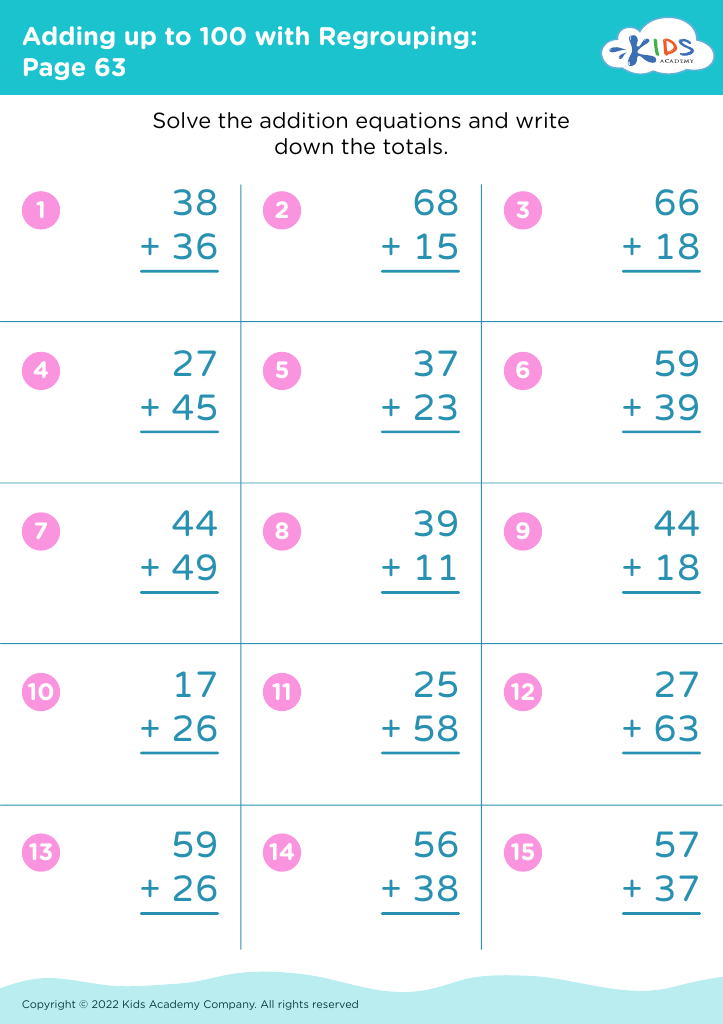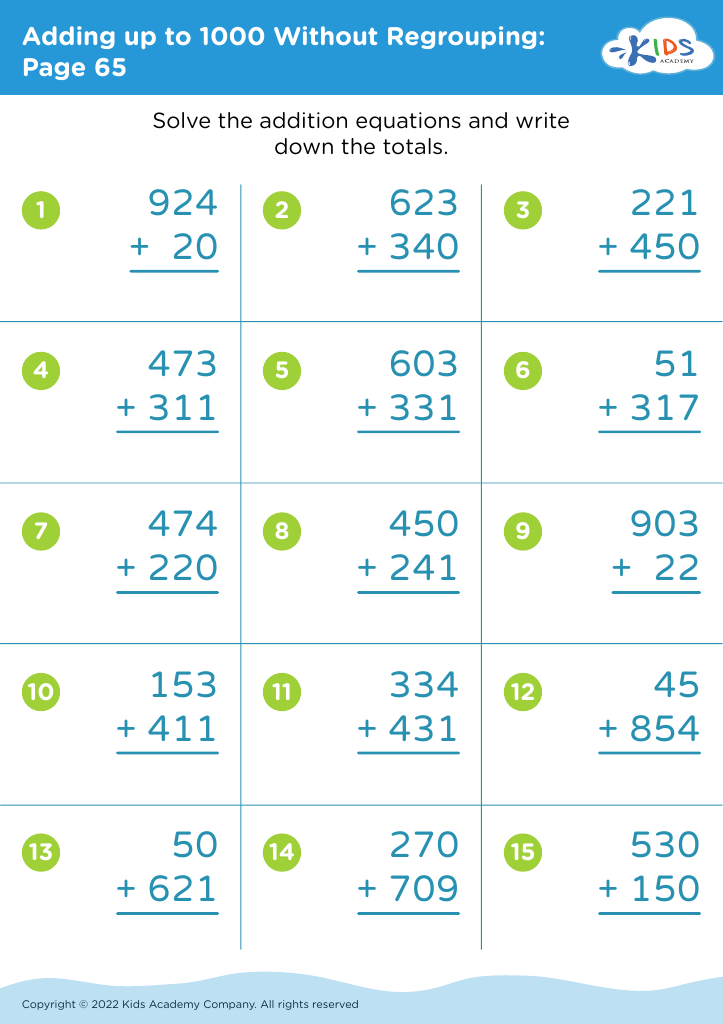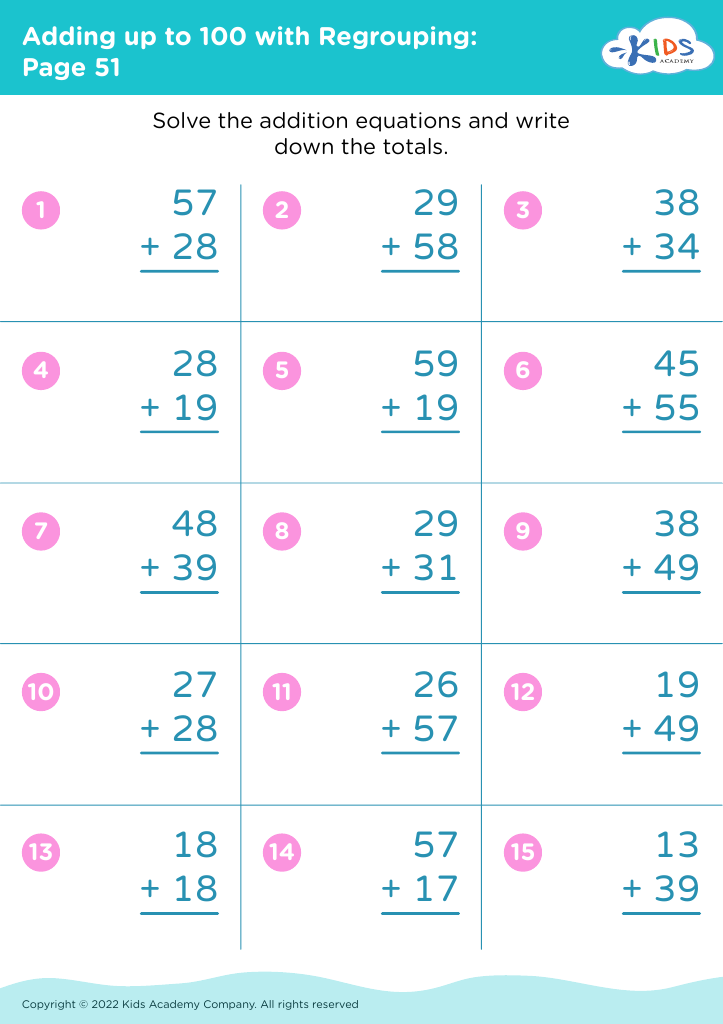Practice problem-solving Addition Worksheets for Ages 3-8
4 filtered results
-
From - To
Enhance your child's math skills with our engaging Practice Problem-Solving Addition Worksheets designed for ages 3-8. Tailored to foster critical thinking and number sense, these worksheets provide a fun and educational way for young learners to master basic addition concepts. Rich in colorful visuals and varied exercises, they encourage children to solve problems creatively while improving their math fluency. Ideal for parents and educators alike, these worksheets can be used at home or in the classroom. Perfect for reinforcing learning, our addition worksheets help build a strong foundation in mathematics that'll benefit your child for years to come. Explore today!
Problem-solving through addition is essential for children's cognitive and emotional development, particularly for ages 3-8, a crucial period for foundational learning. First, mastering addition helps children grasp basic mathematical concepts, fostering a strong numeracy foundation that supports later academic success. Engaging in problem-solving allows them to apply their knowledge to real-world situations, enhancing critical thinking skills.
Moreover, practicing addition through problem-solving encourages children to be persistent and resilient. When faced with challenging problems, they learn to explore different strategies, evaluate their effectiveness, and regroup when necessary. This skill promotes a growth mindset, emphasizing that challenges can be overcome through effort and persistence.
As a collaborative activity, solving addition problems together can strengthen the bond between parents, teachers, and children. It opens up opportunities for meaningful interaction, emotional support, and encouragement. Furthermore, incorporating themes that align with children’s interests makes learning more enjoyable and engaging.
Ultimately, prioritizing addition problem-solving prepares young learners for life's challenges, instilling confidence and fostering a passion for learning that spans beyond mathematics. Encouraging this early practice equips them with essential skills they will carry into future education and everyday situations.























